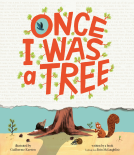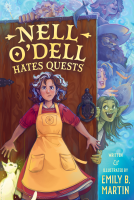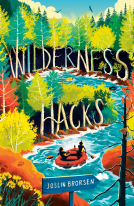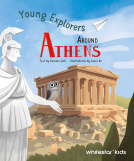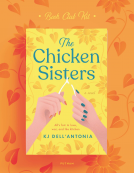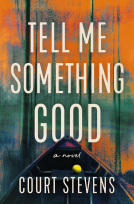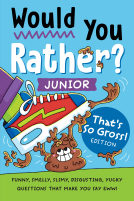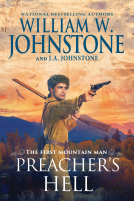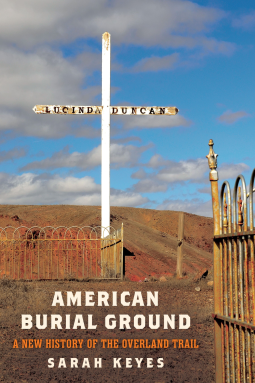
American Burial Ground
A New History of the Overland Trail
by Sarah Keyes
This title was previously available on NetGalley and is now archived.
Send NetGalley books directly to your Kindle or Kindle app
1
To read on a Kindle or Kindle app, please add kindle@netgalley.com as an approved email address to receive files in your Amazon account. Click here for step-by-step instructions.
2
Also find your Kindle email address within your Amazon account, and enter it here.
Pub Date Oct 24 2023 | Archive Date Oct 16 2023
Talking about this book? Use #AmericanBurialGround #NetGalley. More hashtag tips!
Description
In popular mythology, the Overland Trail is typically a triumphant tale, with plucky easterners crossing the Plains in caravans of covered wagons. But not everyone reached Oregon and California. Some 6,600 migrants perished along the way and were buried where they fell, often on Indigenous land. As historian Sarah Keyes illuminates, their graves ultimately became the seeds of U.S. expansion.
By the 1850s, cholera epidemics, ordinary diseases, and violence had remade the Trail into an American burial ground that imbued migrant deaths with symbolic power. In subsequent decades, U.S. officials and citizens leveraged Trail graves to claim Native ground. Meanwhile, Indigenous peoples pointed to their own sacred burial grounds to dispute these same claims and maintain their land. These efforts built on anti-removal campaigns of the 1820s and 30s, which had established the link between death and territorial claims on which the significance of the Overland Trail came to rest.
In placing death at the center of the history of the Overland Trail, American Burial Ground offers a sweeping and long overdue reinterpretation of this historic touchstone. In this telling, westward migration was a harrowing journey weighed down by the demands of caring for the sick and dying. From a tale of triumph comes one of struggle, defined as much by Indigenous peoples’ actions as it was by white expansion. And, finally, from a migration to the Pacific emerges instead a trail of graves. Graves that ultimately undergirded Native dispossession.
Advance Praise
"The great overland migration was one of the true epics of American history. In American Burial Ground, Sarah Keyes gives us a fresh and decidedly darker view of life and death on the trails to California and Oregon—what one traveler called this ‘boundless city of the dead.’ The story was as well a struggle between newcomers and Natives for the possession of sacred lands in the West."
—Elliott West, author of The Contested Plains: Indians, Goldseekers, and the Rush to Colorado
"Anyone who thought there was nothing left to say about the Overland Trail is wrong. By focusing on death, Sarah Keyes brilliantly shows how the Overland Trail became a national cemetery that allowed white Americans to claim Indigenous territory for themselves. Against this erasure, Keyes also provides a deep engagement with Indigenous history, giving voice to Indigenous counternarratives opposing separation from their ancestors’ bones, revealing how their removals were marked by graves as well as tears, and registering how Indigenous people engaged with white nationalist politics in an effort to retain and regain their homelands. A sobering look at western history and a profound meditation on how deaths are remembered and forgotten."
—Jeffrey Ostler, author of Surviving Genocide: Native Nations and the United States from the American Revolution to Bleeding Kansas
"American Burial Ground reminds us how much we can learn when a wise-eyed historian takes a new approach to the classic story of westward migration. Sarah Keyes deftly shifts the focus from the heroic pioneers who crossed the continent on the Overland Trail to the bodies of those they buried along the way. The dead, she tells us, bolstered white claims to the West, helping to turn Native places into an American place. But the Native dead have served their communities too, registering the costs of conquest and helping to fuel resistance to white settlement."
—Ann Fabian, author of The Skull Collectors: Race, Science, and America’s Unburied Dead
Available Editions
| EDITION | Other Format |
| ISBN | 9781512824513 |
| PRICE | $39.95 (USD) |
| PAGES | 272 |
Available on NetGalley
Average rating from 10 members
Featured Reviews
I had never really considered viewing the American West through the lens of grief and death, but it obviously makes sense. Everyone who reads this instantly knows how precarious the journey was (thanks, Oregon Trail) but to use it as a way to frame our understanding of the journey fascinated me. Keyes does a great job not just looking at ritual, but emotion. It made me eerily wonder how many times I have driven or walked over someone's last resting place, whose marker was blown or taken away without full acknowledgement.
In some ways, the Western plains are a massive burial ground, and Keyes helps us reframe our understanding of the land that gave the country so much, and yet took so many people away. The choices people made to continue the journey after their losses should not be forgotten, and she does a great job of bringing those recollections back into our historical memory
 Maggie J, Reviewer
Maggie J, Reviewer
This book was a tough read, not only because at times it was as if I was reading a textbook, but other times the stories were just heartbreaking and other times horrifying. There was an immense amount of history, I do appreciate the work that went into this book, but it was very drawn out for me. I thank NetGalley and University of Pennsylvania Press for the advanced read.
YES! This is my jam.
I am obsessed with mormon lore. History has repainted these journies west and made them admirable and lovely.
But omg so many people died. Terrible horrible things happened to people. It bothers me so much that pregnant women were dragged along with their children on this trek across the US. So many died. Young girls were orphaned and then married to men on the trek so they would have someone to escort them and care for them when they arrived wherever they were going.
If they had just waited a few more years they could have journeyed by train.
One of the hardest things to swallow while studying Mormon history is the way they perceive their treatment of the native people "we taught them how to be productive" "We helped them." "We were their saviors."
Meanwhile, this is happening to the native people.
I loved this because I love bumming people out with my knowledge of local history and this fits. I can bum so many people out with my new knowledge.
 Denice L, Reviewer
Denice L, Reviewer
In today's cultural cemeteries, a person is buried in a piece of land that they own. They bought it from the cemetery owners, usually a church or municipality and own it for perpetuity. Prior to this, most family members were buried in a section of land set aside on the family's property. This section grew as the need grew. But the land, it belonged to the family of the dead.
There are numerous books written on the Oregon Trail and those settlers and adventurers who travelled this 2,170 mile road from what is now Kansas through Nebraska, Wyoming, Idaho and Oregon. This road roughened population would make it to Oregon or die trying. Many died and were buried in what was considered no-man's land along the trail.
But that land was part of the allotments given to the Indian tribes in exchange for their forced removal from Georgia and the Carolinas. When the the land's value became evident, those buried travelers would become part of the argument that the land belonged to the families of those buried there. But the same argument had already been disavowed when the tribes sued for their burial grounds. The arguments would never be weighted on the same scale and the Indigenous peoples would carry forth the fight even through today's courts.
AMERICAN BURIAL GROUND is a book sure to make you think. The arguments on both sides could not exist side by side but who had the right to decide the outcome? This is definitely another book that should be read by those who would argue that one group's claims outweighed another. I will be sharing this book and how it has affected my thoughts with my reading circle.
 Educator 926584
Educator 926584
In American Burial Ground, Sarah Keyes offers a fresh take on the history of the Overland Trail (commonly referred to as the Oregon Trail), centering the attitudes and behaviors towards death and burial. Keyes argues that these seemingly personal practices contributed to larger cultural beliefs and ultimately allowed the United States to lay claim to the land where Americans were buried. With nuance and care, Keyes details both individual and collective experiences to illustrate the difficulties of travel and deftly utilizes them to frame the history of the Overland Trail as one of conquest. Keyes has written a compelling narrative that history readers will devour.
Thank you University of Pennsylvania Press and NetGalley for an eARC copy of American Burial Ground by Sarah Keyes.
This particular book took me a long time to get through as it took me a while to get through the introduction and I had to take breaks between chapters to really soak in the information. The book is quite informative and Sarah Keyes took a lot of care in describing death and the effects on the indigenous peoples of the land. But, personally I would not pick it up to read for fun.
A scholarly but accessible account of how the Oregon Trail shaped nineteenth-century America’s relationship with death. The account of the Trail is inclusive of both the westward expansion of white emigrants and the forced dispossession of Indigenous peoples, and examines how both groups used the language of death to assert their nations’ land rights.
Keyes gives a thorough overview of the history of Trail scholarship and does an excellent job of tracing and providing analysis of Trail death rhetoric and imagery in nineteenth century political writing. She gives enough of a background on white American Protestant mourning culture and the rural cemetery movement to ground readers unfamiliar with the concepts while examining what made Trail deaths so rhetorically compelling in both the emigrant and indigenous American imaginations.
For me, the most fascinating parts were the deep dives into figures of Indigenous resistance to emigrant and military American violence and the defenders of Indigenous gravesites, such as Sarah Winnemucca, particularly in how they used the rhetoric of the colonizer in their political self-defense.
My main issue with the book is that Keyes repeats herself frequently. While she is clearly deeply invested in her readers understanding and comprehending the history she is uncovering, the frequent retreading of the same ground sometimes makes for slow going despite the fascinating subject matter. For that reason I would recommend the book to die-hard American history buffs and academics in relevant fields, but would caution casual readers not to expect a quick or easy overview.
*American Burial Ground: A New History of the Overland Trail* by Sarah Keyes offers a somber reexamination of the Overland Trail, shifting the narrative from one of triumphant westward expansion to a reflection on death and dispossession. Keyes meticulously uncovers how the graves of the approximately 6,600 migrants who perished along the Trail became instrumental in the U.S. expansion, often at the expense of Indigenous lands and sacred burial sites.
This book challenges the traditional heroic mythos of the Trail by placing death at the heart of the story, illustrating how these losses were used to justify territorial claims. Yet, Keyes also emphasizes the resilience and resistance of Indigenous peoples who fought to protect their sacred lands against these encroachments.
Keyes' work is not just a history of migration but a compelling meditation on how death was wielded as a tool of conquest, making *American Burial Ground* an essential read for those interested in a deeper, more nuanced understanding of American history. While dense and at times repetitive, the book is a vital contribution to our understanding of the Overland Trail and its lasting impact on both white settlers and Indigenous communities.
Thank you to the publishers and NetGalley for the opportunity to review a temporary digital ARC in exchange for an unbiased review.
Readers who liked this book also liked:
Eoin McLaughlin, illustrated by Guilherme Karsten
Children's Fiction, Outdoors & Nature
L.M Montgomery
Children's Fiction, Comics, Graphic Novels, Manga, Teens & YA
